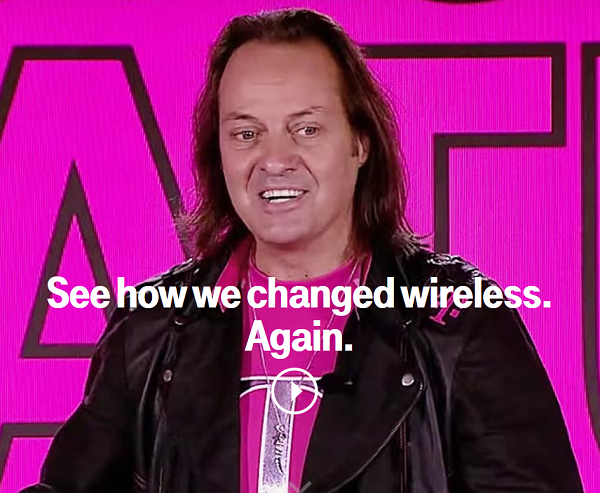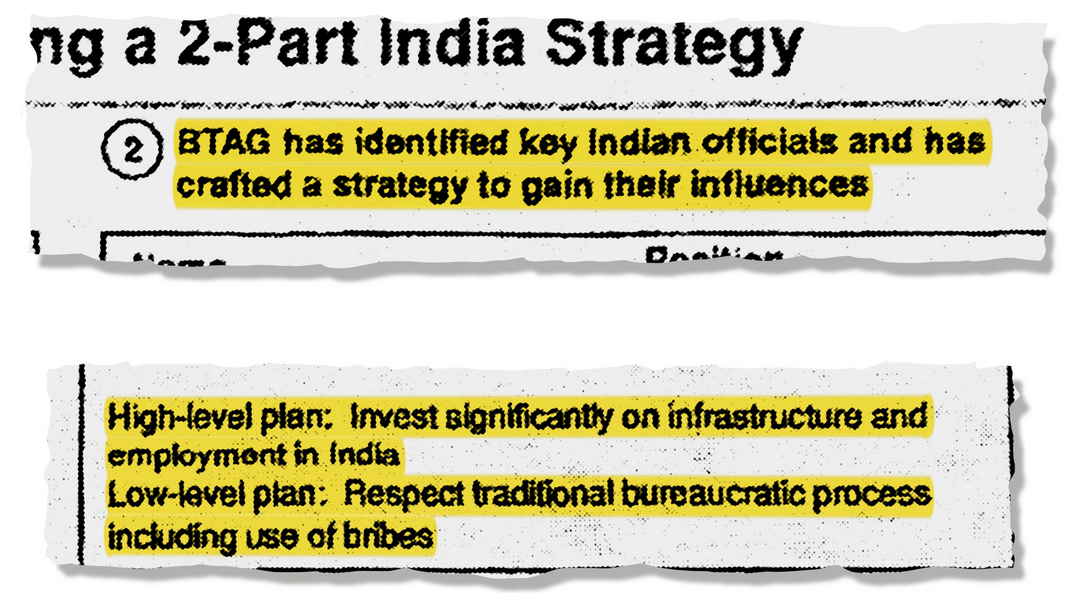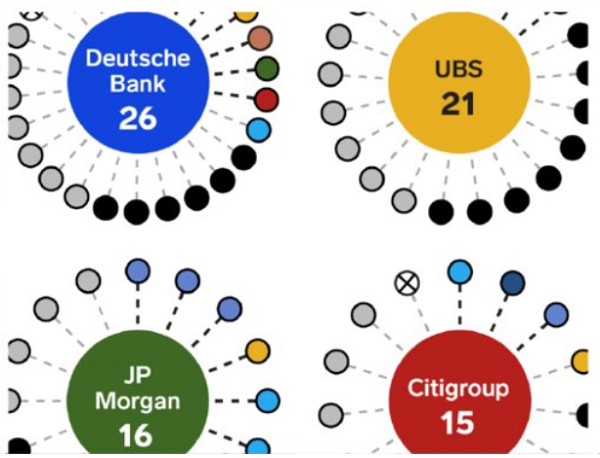Starbucks CEO Draws His Own Path
Starbucks CEO Kevin Johnson is identifying his own vision for the company—apart from Howard Schultz’s plan. In an interview with the Wall Street Journal, Johnson said that the previous plan to open about 1,000 Reserve cafes will be piloted with just a few stores. Reserve stores deliver a higher-end experience, selling artisanal products and cocktails.
The change is one example of how Johnson is distinguishing himself from Schultz, who was the company CEO for about 30 years. According to the article, Johnson often started meetings with, “I’m not Howard. I’m Kevin.” A couple of weeks after Schultz left, Johnson said about the business strategy, “Certainly, I tend to bring a much more disciplined approach to picking the priorities.”
Starbucks Reserve image source.
Kevin Johnson image source.
Discussion:
Is it important for Johnson to distinguish himself from Schultz? Why or why not?
Read more about Johnson as the new CEO. How well is he handling the transition? What, if anything, should he do differently? He’s in a tough spot, wanting to create his own path but needing to be respectful to the previous leadership.
T-Mobile Replaces Automated Systems with People
In a new marketing campaign, T-Mobile promises more personal service: “Real customer service takes real people.” By introducing a “team of experts,” the company wants customers to reach actual people instead of spending too much time waiting for voice prompts and replies.
The message is clear on T-Mobile’s website and in the results. The company acquired 2.4 million new customers in the fourth quarter of 2018 compared to Verizon’s 600,000.
Humor is one strategy the company is using to steal rivals’ business. A 4.5-minute commercial shows actor Rainn Wilson trying to navigate a company’s voice response system. We can all relate: the system doesn’t understand us, we get transferred around—and then our phone battery dies. The video ends with this message:
“Calling customer service is the worst. The best customer service in wireless just got better. No bots. No bouncing. No BS.”
Discussion:
What are the risks of using humor for persuasive messages? How well do you think it works in this case? Why or why not?
What is your experience with voice response systems? When have you received exceptional service via the phone?
To what extent would the ability to reach a person right away influence your decision to do business with a company?
Congresswoman Responds to Criticism
Some Republicans are having a tough time with newly appointed NY Congresswoman Alexandria Ocasio-Cortez, and she is firing back. Ocasio-Cortez complained about being unable to afford housing in D.C. until her salary went into effect, and critics commented on her expensive-looking clothing. When she stood up to vote for Nancy Pelosi as house speaker, Ocasio-Cortez was booed.
A Twitter user posted a video of her dancing at Boston University. Although the account has seen been deleted, the video went viral with the text, “Here is America’s favorite commie know-it-all acting like a clueless nitwit she is.” Ocasio-Cortez shot back a new video of her dancing to a couple of bars of the 1969 song “War.” Reactions have been mostly positive, with some conservative groups saying they thought the original video was “cute” and that negative reactions were overstated.
As the youngest woman elected to Congress, Ocasio-Cortez has a few hurdles to pass. She is 29 years old, represents the Queens-Bronx section of NY, and is an advocate for the working class.
Discussion:
What’s your view of Ocasio-Cortez’s initial video and her response?
In what ways is the congresswoman demonstrating authenticity? Or do you see it as something else?
Review several of Ocasio-Cortez’s tweets. How do you assess her social media use? What advice would you offer her?
Robots Screen Candidates' Social Media
A Wall Street Journal video explains how DeepSense uses artificial intelligence to analyze a job candidate’s personality. When companies post a job, recruiters or hiring managers identify what is most important for success; for example, how important is teamwork or project management? DeepSense then looks at a candidate’s social media profile to assess personality.
Founder Amarpreet Kalkat explains that the system may review a social media profile for only six seconds and will generate a report about the applicant’s DISC profile (a personality assessment) and “Big Five” personality traits. Using psycholinguistics, the computer analyzes language the candidate uses.
Kalkat says their results are 75% accurate, while traditional personality tests are 82% accurate.
Discussion:
What’s your view of using AI in this way? How confident would you be applying for a job that uses this technology?
How relevant is personality to a position? What are the advantages to a company of using such a system, and what are the potential disadvantages?
The video refers to “DeepSense,” but the website shows “DeeperSense.” How do you explain the discrepancy?
Marriott Breach Involved Passports
Although fewer people were affected by the Marriott data breach than originally expected, millions of passport numbers have been stolen. Marriott representatives have clarified that the breach happened at Starwood before the acquisition was completed. In its latest statement, Marriott confirmed that the following were stolen:
There were approximately 8.6 million unique payment card numbers, all of which were encrypted
There were approximately 5.25 million unique unencrypted passport numbers and approximately 20.3 million encrypted passport numbers.
Officials say it’s unlikely that someone could create a fake passport based on only a number. But the breach is worrying because passport numbers provide intelligence agencies with information about where people go, particularly when they cross borders. The U.S. hasn’t charged China with the breach, but experts say tactics are similar to those used in other breaches.
Marriott is offering new passports for guests whose documentation was used for fraudulent purposes.
Marriott image source. Passport image source.
Discussion:
Analyze Marriott’s communication so far: the audience, objectives, organization, tone, and so on. What works and what could be improved?
Compare the communication to how other companies handled a data breach.
Should Marriott offer new passports to all affected guests—not just those whose documentation was used for fraud? Why or why not?
McKinsey PPT Slide Causes Problems
Back in 2006, Boeing hired management consultancy McKinsey to help the company launch its 787 Dreamliner despite rising titanium prices. According to a New York Times article, McKinsey evaluated a proposal for Boeing “to mine titanium in India through a foreign partnership financed by an influential Ukrainian oligarch.”
On a PowerPoint slide, the consultancy suggested that Boeing “respect traditional bureaucratic process including use of bribes.” Included on the slide were names of eight “key Indian officials.” As the article notes, “Nowhere in the slide did McKinsey advise that such a scheme would be illegal or unwise.”
McKinsey admitted authoring the report only after learning that the Times had a copy. Details are fuzzy, and McKinsey isn’t offering more explanation.
Discussion:
What’s your view of McKinsey’s responsibility in this situation? Do you believe they encouraged illegal activity, were just doing the job of management consultant firm and considering cultural realities, or something else?
The PPT slide seems to have implicated McKinsey. Should the consultants have been more careful about what was documented? Why or why not?
What character issues may be at play in this situation?
The NYT author wrote, “Nowhere in the slide…” I would say, “Nowhere on the slide…” Which is correct—or are both acceptable?
Graphics of 2018
Business Insider has identified the “best original photos and graphics of the year”—by Business Insider. The news site does create some impressive charts to help us understand data.
The list includes graphics to explain Kim Jong Un's family tree, how the solstice works, radiation levels for Mars colonists, and when business leaders became millionaires and billionaires.
Discussion:
Which one or two from the article are most compelling to you? How does the visual convey the point well?
Which one or two do you find least compelling or effective? Why? How could they be improved?
Acting Attorney General's Credentials Questioned
Acting U.S. Attorney General Matthew Whitaker seems to have inflated his self-description as an “Academic All-American.” The title appeared on a bio for his previous law firm’s website, on an application for a judge position in 2010, and on a resume discovered from 2014.
Whitaker played football at the University of Iowa for two years, but he didn’t receive the official honor, according to the organization that grants the title. In 1992, the title went to another Iowa player.
Part of the confusion may be caused by a media guide produced by the university. An assistant athletic director admitted to describing Whitaker as “District VII academic All-American,” which is not correct.
Whitaker image source. Resume icon image.
Discussion:
The Wall Street Journal report doesn’t include a quotation from Whitaker. What, if anything, should Whitaker say to defend himself?
What on your resume could be called into question? Have you exaggerated any of your experience that could be discovered? Should you change anything to be more accurate?
How is this situation an issue of integrity? What other character dimensions could be at play here?
Facebook's Rules for Managing Political Speech
A New York Times article describes a complex rulebook to help employees decide whether to address political speech on the site. The decision process is daunting, and guidelines include extensive examples of content—text and visuals—that may indicate hate or inspire violence.
The author questions whether Facebook employees are making rational, consistent decisions:
The guidelines for identifying hate speech, a problem that has bedeviled Facebook, run to 200 jargon-filled, head-spinning pages. Moderators must sort a post into one of three “tiers” of severity. They must bear in mind lists like the six “designated dehumanizing comparisons,” among them comparing Jews to rats.
Others say Facebook has too much power because the company controls speech in international political situations. For example, before an election in Pakistan, during a 24-hour media blackout, Facebook may have been the go-to source. Before this time, Facebook distributed 40 pages of “political parties, expected trends, and guidelines” to its employees. But guidelines sometimes contradict each other, and Facebook relies of Google Translate, which may not be accurate or precise enough.
Discussion:
When Facebook faced criticism about sharing information with technology partners, company leaders responded in a blog post. If they were to do something similar in this case, what should they say to rebuild confidence in the site?
Although the rules can be a “bit baffling,” as the author says, Facebook is trying to address other criticism about its response to hate and violence on the site. What, if anything, can the company do differently to accept accountability?
Juul Employees Can't Juul at Work
The e-cigarette company has decided to follow the law and prohibit its employees from Juuling at work. The law isn’t new: The California law against vaping in the workplace has been on the books since 2016.
A Wall Street Journal article describes vaping etiquette from the American Vaping Association:
There is etiquette for in-office vaping, says Gregory Conley, president of the American Vaping Association. Foremost: Don’t blow clouds. Take a puff and hold your breath for three to five seconds, and the vapor evaporates in your mouth. “If it’s 10 degrees outside and I want a single puff, I just take a puff and hold my breath” when indoors, he says. “Ninety-nine percent of people don’t care so long as they don’t see anything.”
Meanwhile, the U.S. Surgeon General just released a warning against vaping. Experts say e-cigarettes have toxic chemicals, and users are at higher risk for a heart attack. Studies indicate that teens who vape are more likely to smoke cigarettes later on.
Discussion:
The situation is a confusing issue of integrity. Some might question why employees were allowed to Juul, against the 2016 law. What’s your view of their decision?
Juul is popular among young people even though the product is intended for people 21-and-over. To what extent is that the company’s responsibility?
Facebook Defends Sharing Information with Partners
Facebook is responding to new criticism about how it shares users’ information. A New York Times report identified a few examples of how Facebook allowed other technology companies to access private information:
Facebook allowed Microsoft’s Bing search engine to see the names of virtually all Facebook users’ friends without consent, the records show, and gave Netflix and Spotify the ability to read Facebook users’ private messages.
The social network permitted Amazon to obtain users’ names and contact information through their friends, and it let Yahoo view streams of friends’ posts as recently as this summer, despite public statements that it had stopped that type of sharing years earlier.
In a blog post, Facebook’s Director of Developer Platforms and Programs, Konstantinos Papamiltiadis, explained the reason for about 150 companies to have such access:
Today, we’re facing questions about whether Facebook gave large tech companies access to people’s information and, if so, why we did this.
To put it simply, this work was about helping people do two things. First, people could access their Facebook accounts or specific Facebook features on devices and platforms built by other companies like Apple, Amazon, Blackberry and Yahoo. These are known as integration partners. Second, people could have more social experiences—like seeing recommendations from their Facebook friends—on other popular apps and websites, like Netflix, The New York Times, Pandora and Spotify.
To be clear: none of these partnerships or features gave companies access to information without people’s permission, nor did they violate our 2012 settlement with the FTC.
The post goes on to explain the value to Facebook users of having their information shared.
Discussion:
Read the full blog post. How well does the company defend its practices? Analyze the audience, communication objectives, writing style, and so on.
How well does the company accept responsibility for sharing information?
What else, if anything, should Facebook do to rebuild its image? The company has faced increased criticism and regulatory interest in the past few months.
NIH Changes Funding Practices
Following criticism in May, the National Institutes of Health (NIH) ended a study aiming to understand whether drinking alcohol every day could have health benefits. The study received $67 million in funding from six alcohol companies.
Now, the NIH is sharpening its guidelines for how employees of its eight institutes seek donations. The NIH director said, “We have to do everything we can to ensure the integrity of the NIH grants process and the quality of our research is above reproach, which means worrying about conflicts.” In addition, the NIH is planning for consistency across its institutes.
Some wonder why the NIH wasn’t already practicing due diligence and preventing conflicts of interest. Critics say the NIH isn’t doing enough and should accept private funding only for general use—not for specific research.
Discussion:
What’s your view of the NIH’s practices? How is this situation an issue of integrity for the organization?
The NIH’s credibility has taken a hit. What can the leaders do to recover the organization’s image?
Report on Larry Nassar
A new report on the former Olympics coach and doctor, Larry Nassar, blames officials at Michigan State University, the U.S. Olympics Committee (USOC), and USA Gymnastics for allowing his abuse of hundreds of girls over decades. The investigators concluded, “Numerous institutions and individuals enabled his abuse and failed to stop him.”
In some cases when officials learned of an abuse allegation against Nassar, they waited weeks or months to report to; in other cases, officials reported claims but didn’t do enough to follow up. In still other cases, officials did nothing at all.
Nassar was finally convicted and sentenced to what will be life in prison. With the report results, some hope the USOC will now be investigated.
The report aligns with an NPR podcast, Believed, tracing claims against Nassar and his medical defense, which was accepted by too many for too long.
Discussion:
How do you think the abuse continued for so long? If you listen to the podcast Believed, you’ll hear Nassar’s defense during police interviews.
Analyze the report. What business communication principles are followed, and in what ways could the report be improved?
Google CEO Faces Congress
Google CEO Sundar Pichai responded to U.S. lawmakers’ concerns about misinformation, bias, and other issues resulting from Google search algorithms.
Pichai answered questions about how Google search works. For example, Rep. Zoe Lofgren of California asked why bias exists is search results: when you type in “idiot,” he said, you get images of President Trump. Here is Pichai’s response:
"We provide search today for — anytime you type in a keyword, we as Google, we have gone out and crawled and stored copies of billions of webpages in our index. We take the keyword and match it against webpages and rank them based on over 200 signals, things like relevance, freshness, popularity, how other people are using it. And based on that, at any given time, we try to rank and find the best results for that query. Then we evaluate them with external raters to make sure, and they evaluate it to objective guidelines, and that's how we make sure the process is working."
Pichai then assured lawmakers, “We don't manually intervene on any particular search result." He also confirmed their attempts to improve information credibility:
"We are constantly undertaking efforts to deal with misinformation. We have clearly stated policies and we have made lots of progress in many of the areas . . . over the past year — so, for example, in areas like terrorism, child safety, and so on.”
As we saw when Mark Zuckerberg testified to lawmakers earlier this year, some representatives had fairly basic questions and misunderstandings about technology. At one point, a representative asked why certain images appeared on his granddaughter’s iPhone, and Pichai had to clarify, “Congressman, iPhone is made by a different company."
Discussion:
How well did Pichai address the search result question about President Trump?
When Pichai said that Apple made the iPhone, laughter erupted. Should he have handled this question differently?
Watch excerpts of Pichai’s testimony. Assess his delivery skills, persuasive strategies, and so on.
Cheesecake's Failed Promotion
To celebrate its 40th anniversary, Cheesecake Factory offered free cheesecake delivery, but stores ran out and deliveries were slow.
Through the app DoorDash, customers ordered a free slice of the cake. The company said 40,000 slices were available, and people who didn’t get their promised piece got angry. Drivers were put in uncomfortable positions, sometimes waiting hours for orders to be ready for delivery. A flight between drivers broke out in Arlington, VA, and one got arrested.
The company responded by expressing gratitude for the tremendous interest and by complimenting themselves for delivering 60,000 slides—but no apology came. DoorDash tweeted, “A huge shoutout to all of the hardworking Dashers who made this exciting day possible! You’re the real MVPs.” A Cheesecake Factory spokesperson said, “Our Day of 40,000 Slices promotion had such a tremendous response from our guests that we extended it and delivered more than 60,000 complimentary slices. We were truly humbled by the popularity of the offer and by how quickly our fans responded as all of the 60,000 complimentary slices were ordered within an hour of the promotion's start time."
Discussion:
How could Cheesecake Factory have done a better job planning the promotion?
Should the company response be different? Do you think the leaders should apologize? Why or why not? If so, what would be an appropriate apology?
Google Translate Decreases Bias
In the past, if you entered “o bir doktor” in Turkish into Google Translate, you would get the result: “He is a doctor.” In a blog post, the company explained that translations were based on common usage, so “it would skew masculine for words like strong or doctor, and feminine for other words, like nurse or beautiful.”
Now, Google Translate will offer both a masculine and a feminine possible translation. The company plans more changes: “We're already thinking about how to address non-binary gender in translations, though it’s not part of this initial launch.”
A Gmail product manager identified the gender-bias problem in the Smart Compose technology, which is used to predict what users will type. Computer-generated follow-up questions to “I am meeting an investor next week,” included “Do you want to meet him?”
Gender pronouns is one issue AI programmers want to solve to improve natural language generation (NLG), which finishes our sentences for us.
Discussion:
What’s your experience with NLG? For example, how helpful do you find Gmail’s suggestions for finishing your sentences in email?
What’s your view of Google’s attempt to decrease gender bias? Is this a worthy goal? Why or why not?
Trump Undocumented Workers Speak Out
Employees of Trump National Golf Club in Bedminster, NJ, say they are undocumented in the U.S. and express disappointment at the president’s comments about immigrants. For five years, Victorina Morales has worked at the property, and her responsibilities sometimes include providing housekeeping services for the president’s private quarters.
Although the president may not have known about their status, Morales and a former employee say several within the housekeeping, maintenance, and landscaping crews don’t have papers to work legally in the U.S.
Morales said her status is known at the club, and she was hurt when she heard the president comparing recent immigrants to criminals:
“We are tired of the abuse, the insults, the way he talks about us when he knows that we are here helping him make money. We sweat it out to attend to his every need and have to put up with his humiliation.”
During the presidential campaign, President Trump said of his businesses, “We didn’t have one illegal immigrant on the job.”
Discussion:
What risks does Morales take by speaking out? Why might she forge ahead and not be deterred by those risks?
How is this a potential issue of integrity for President Trump?
Should President Trump be held accountable for undocumented workers on his properties? Why or why not?
Deutsche Bank on the Defense
With stock at an all-time low and a German government raid last week, Deutsche Bank is trying to reassure customers and shareholders. Finance chief James von Moltke said on CNBC, “To date, we’re not aware of any wrongdoing on our part.” The investigation relates to the Panama Papers, which are documents made public in 2016 that revealed tax havens for individuals from more than 200 countries.
Throughout the CNBC interview, von Moltke tries to put the issue into perspective. He says the investigation involves a small, trust services business that the bank sold earlier this year. However, some of the money laundering accusations involve current managers. Still, von Moltke claims that new precautions are in place today.
Deutsche Bank stock fell further on the news, losing 51% of its value this year.
Discussion:
Assess the CFO’s video interview with CNBC. What persuasive communication strategies do you observe?
Which are his strongest and weakest arguments?
Also assess his delivery skills: tone, rapport, volume, pace, and so on.
Marriott Security Breach
Personal information of more than 500,00 guests was stolen from the Starwood reservation system. Exposed data includes payment card information, and critics say the company could have avoided the breach years ago. In 2015, Starwood announced a small breach, which cybersecurity experts say should have inspired the company to do more at the time. Starwood argues it didn’t realize the risk, and Marriott leaders argue that they had not yet acquired Starwood. On Friday, Marriott shares were down 5.6%.
A notice at the top of the Marriott homepage reads, “For more information on the Starwood guest reservation database security incident, please click here.” Although the breach was from a Starwood database, the media is consistently reporting the news as “Marriott.” That link and a press release on the website both go to legal sounding statements, although they do provide FAQs at the bottom.
Lawsuits have already been filed against the company for failing to protect users’ data.
Discussion:
Is the company taking adequate responsibility for the breach? Explain your response.
How can Marriott respond to this crisis and protect the brand at this point?
How can the website information be improved? Consider the primary and second audiences, communication objectives, organization, writing style and so on.
Prep School Criticized for Abuse and False Apps
College prep school T.M. Landry has garnered national attention for helping Black students get into college, but all has not been well at the school. Students are speaking out about emotional and physical abuse as well as falsified college applications.
According to a New York Times report, examples of physical abuse include “forced to kneel on rice, rocks, or hot concrete for hours” and being “choked, yelled at, and berated.” Students report being told to lie on college applications about classes they took and the conditions under which they grew up, for example, exaggerating their poverty.
The Landrys, a married couple who run the school, defended their actions, saying they push kids to their limits. Mr Landry admits to physical contact, and he said, “Oh, I yell a lot.” Since a 2013 case against him that included probation, Landry says he no longer practices physical punishment. He also denied falsifying students’ applications.
College results have not been great. Students who spent more time at the prep school are more likely to withdraw or transfer to less demanding programs. The New York Times article describes an unaccredited school with little traditional programming, so students may not be academically prepared for the schools that admit them.
Discussion:
Assess the school website. The opening video features Mr. Landry, and the rest of the site boasts college acceptances. How convincing might families find the way the school is promoted? Other than admitting abuse, should the site say more to give parents and prospective students a more accurate picture of the school philosophy and practice?
How is this situation an example of failing integrity? Also consider intent versus impact. What could the founders' intent, and how is that different from the impact?





































